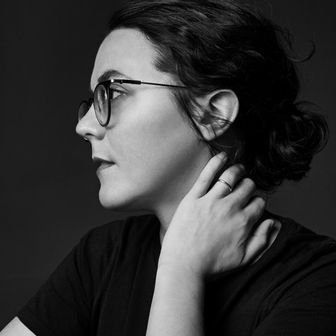
On Monday, reporter Nina Martin published her latest dive into a topic she thinks isn’t getting enough attention in this country: maternal health. “Lost Mothers,” from ProPublica and in partnership with NPR, is the result of Martin and her colleagues “searching social media and other sources for mothers who died, trying to understand what happened to them and why.”
So far, they’ve identified 120 women out of an estimated 700 to 900 who died of causes related to pregnancy and childbirth in the U.S. last year. The piece includes a photo album and links to obituaries — and briefly profiles 16 women, describing their lives and deaths, often through the words of the people they left behind. (ProPublica and NPR plan to keep adding to the project; if you can help by identifying a woman who died in 2016 from a pregnancy- or childbirth-related cause, please tell them here.)
The Cut spoke with Martin about what she hopes to accomplish with her work, why maternal health is often left out of the conversation, and what anyone currently pregnant or considering pregnancy should know.
Why did you begin this project?
My beat is sex and gender issues, but I have a long-time interest in issues around pregnancy and maternal health. Years ago, I worked at BabyCenter, as the founding editor of their print magazine. My interest in maternal health is personal too — in early 2000 my sister nearly died after giving birth. We were lucky; she survived. But I remember the trauma and disorientation very clearly.
Flash-forward many years, when reports started coming out that show maternal death is on the rise in the U.S. Some of those reports really struck home for me. One in particular tallied not the number of maternal deaths, but the number of maternal near-deaths — according to the CDC, it’s about 65,000 a year. That’s an astonishing figure. During my family’s experience, we’d been feeling very isolated — obviously and especially, my sister. She’d been thinking hardly anyone else had been through this. But it turns out there were so many other women, every year.
I started putting together a spreadsheet. While I was going through it, I noticed I had not come across that many specific women who’d died of childbirth, and the ones I had found were sometimes surprising to me. So I wondered: What if we started looking for these women?
What was surprising about the women you found initially?
One category was the people I just didn’t expect. The common stereotype about maternal mortality in this country is that it only happens to poor women. We have this idea that it’s very much a function of a health-care system that really doesn’t work for many people, especially poor women of color or low-income women with preexisting conditions they’re more likely to go into pregnancy with because they don’t have access to preventative care. That’s who we thought we would find. But those people were the hardest to find online, because they’re less likely to be memorialized online, or if they do have an obituary, it doesn’t usually mention the cause of death.
We found women like Amy Bartlett, who was a spokeswoman for Yellowstone National Park. Other professional people like that — lawyers, doctors, nurses, a lot of nurses. There was a mom who co-founded a YouTube channel, WhatsUpMoms.
The other category I wasn’t expecting was women dying of conditions like hemorrhage and preeclampsia. It seemed like preeclampsia didn’t need to be that dangerous: About 4 percent of pregnant women in the U.S. get diagnosed with preeclampsia — that’s a lot of women, and they don’t die. Sybil, on Downton Abbey did, but that show depicted a time period 100 years ago.
To see women dying of complications that seemed like ones we don’t need to die of anymore — that was surprising.
What’s the overall change you’d hope to see from your work?
The one really important thing I’d like to see is a shift in how people think about maternal mortality and severe morbidity. The shift would be going from private catastrophes, private tragedies that happen to you and your family, that you talk about among your friends and family, if you talk to anyone at all — to a perception that this is a public-health issue.
We are talking about a collection of private tragedies, but the bigger issue, when you stand back to look at the whole picture, is maternal health. As you look at these cases and start talking to experts and researchers, you realize that not nearly enough attention has been paid to maternal health, well-being, and safety. Not nearly as much as people think, or ought to be.
An idea that kept coming up — with doctors, researchers, and the women who survived near-death — was that we pay more attention to the health and safety of babies than we do to moms. It’s something that’s become very embedded in our health-care system. It’s not that large amounts of doctors, hospitals, nurses, and midwives don’t care, because they really do. There’s a lot of really good care out there. But there’s also all kinds of ways that we don’t really think of the mom first, because we assume these deaths or near-deaths are almost nonexistent.
This is a change that’s happened over time, where the mom has become less and less noticed in this equation of maternal health. I think it’s important to tell people that.
What should pregnant women, women considering pregnancy, or people with a pregnant loved one know about maternal mortality in the U.S.?
While maternal death is a lot more frequent in the U.S. than people realize, it’s still pretty rare. Severe maternal morbidity — that 65,000 figure — represents just about 1.6 percent of births in the U.S. Which is a lot more than people realize, but is still a small number.
The takeaway is to be vigilant — it’s not to freak out, because, for the most part, there’s no reason to freak out. It’s to go into birth knowing you need to worry about things other than whether you’ve picked the best baby name. Understanding what’s normal for your body — that’s something we heard over and over again from the people we surveyed who fell into that near-miss category. You have to feel empowered to advocate for yourself. Even more important is having someone with you to advocate for you, in the event you hear that you’re being “silly” or what’s happening is totally normal for pregnancy or postpartum.
A woman who’s just given birth is exhausted. She may not feel like she can leave her children or her job — or whatever it is that’s constraining her — to go to the doctor. She needs an advocate to look out for her, someone to say that she doesn’t seem fine and needs to go to the doctor.
Our goal was definitely not to freak people out. I think people are freaked out by this because, in part, it’s not something we usually talk about. Often, when we talk about pregnancy and childbirth it’s lighter — gender-reveal parties, names, baby clothes. Those things are great and wonderful and important. Maternal death, again, is very rare, but it does happen. Complications are also rare, but much less rare — they do happen. If they happen to you or someone you know, even if everyone survives, the experience can be life-changing. It’s important to be aware and factor what we do know into our thinking about maternal health.
This interview has been edited and condensed.





